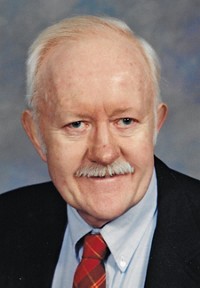Advertisement
Grab your lab coat. Let's get started
Welcome!
Welcome!
Create an account below to get 6 C&EN articles per month, receive newsletters and more - all free.
It seems this is your first time logging in online. Please enter the following information to continue.
As an ACS member you automatically get access to this site. All we need is few more details to create your reading experience.
Not you? Sign in with a different account.
Not you? Sign in with a different account.
ERROR 1
ERROR 1
ERROR 2
ERROR 2
ERROR 2
ERROR 2
ERROR 2
Password and Confirm password must match.
If you have an ACS member number, please enter it here so we can link this account to your membership. (optional)
ERROR 2
ACS values your privacy. By submitting your information, you are gaining access to C&EN and subscribing to our weekly newsletter. We use the information you provide to make your reading experience better, and we will never sell your data to third party members.
People
Alexander T. (Sasha) Shulgin
by Susan J. Ainsworth
August 18, 2014
| A version of this story appeared in
Volume 92, Issue 33
Alexander T. (Sasha) Shulgin, 88, a biochemist and psychopharmacologist who popularized 3,4-methylenedioxymethamphetamine (MDMA), better known as the drug Ecstasy, died of cancer on June 2 at his home in Lafayette, Calif.
Born in Berkeley, Calif., Shulgin attended Harvard University but dropped out in 1943 to serve in the Navy during World War II. After the war, he enrolled at the University of California, Berkeley, earning a B.S. in chemistry before receiving a Ph.D. in biochemistry in 1954. He completed postdoctoral work in the fields of psychiatry and pharmacology at UC San Francisco.
After working briefly at Bio-Rad Laboratories as a research director, he joined Dow Chemical as a senior research chemist. He invented Zectran, the first biodegradable pesticide, before diving into research in the field of psychedelic chemistry.
In late 1966, Shulgin left Dow to set up a home-based lab on his Berkeley-area property, known as “the Farm,” and became a private consultant. In the 1970s, he developed a relatively simple method for synthesizing MDMA, which had first been synthesized in 1912 by Merck & Co. He introduced the drug to psychologists for psychopharmaceutical use. However, within a few years, MDMA became a widely used recreational drug that led to an unknown number of deaths, and federal authorities placed it on the Drug Enforcement Administration’s most restrictive list of dangerous substances.
Throughout his career, Shulgin continued to develop new psychedelic drugs. In 1991 and 1997, he and his wife Ann authored two books, which described their work and personal experiences with psychoactive drugs. Shulgin was an emeritus member of ACS, joining in 1957.
Shulgin’s first wife, Nina, died in 1977. Their son, Theodore, died in 2011. In addition to his wife of 32 years, he is survived by four stepchildren.
Obituary notices of no more than 300 words may be sent to Susan J. Ainsworth at s_ainsworth@acs.org and should include an educational and professional history.



Join the conversation
Contact the reporter
Submit a Letter to the Editor for publication
Engage with us on Twitter